Lagos, Feb 9 (AFP) Nigeria's main presidential hopefuls court voters in two key cities on Saturday, as election campaigning reaches its climax with one week to go before the ballot.
The commercial hub of Lagos in the southwest is expected to grind to a halt as President Muhammadu Buhari visits for a rally in front of tens of thousands of supporters.
His main opposition rival, Atiku Abubakar, is also holding a "mega-rally" in the capital, Abuja.
Both events are among the final stops on the campaign trail around Nigeria's 36 states and the Federal Capital Territory before voting begins next Saturday.
Buhari, 76, wants a second, four-year term while Abubakar, 72, is hoping to finally secure the presidency after four previous attempts.
A record 84,004,084 voters are registered this year -- up 18 percent from 2015, when Buhari became the first opposition candidate in Nigerian history to defeat a sitting president.
Buhari, of the All Progressives Congress (APC) party, secured just under 54 percent of the vote, beating Goodluck Jonathan, of the Peoples Democratic Party (PDP), by 2.6 million votes.
The elections are the sixth to be held since Nigeria returned to civilian rule in 1999 after decades of military government. Election authorities have given no details on when official results will be announced, but in the 2015 election initial figures were released 48 hours after polls closed, though polling went into a second day.
The APC is bullish about Buhari's chances of re-election. But many predict a tighter race because of dissatisfaction at insecurity, claims of a one-sided fight against corruption and the oil-dependent economy's recovery from recession.
"People are tired after four years of Buhari and even if he's the incumbent, the outcome of the elections is very uncertain," said Cheta Nwanze, of analysts SBM Intelligence.
Two key factors that played a major part in previous votes -- ethnicity and religion -- have been removed, as both Buhari and Abubakar are Hausa-speaking Muslims of the Fulani ethnicity.
"Buhari is positioning himself as a statist, pro-big government, where government should own most things, while Abubakar on the other side is positioning himself as pro-business, pro-private enterprise," said Nwanze. "It's unique in our history. We have never had that before." Veteran politician Tanko Yakasai said the focus on policy and programmes could be a "good beginning for Nigerian politics", as younger, more ideologically driven politicians emerge.
In all, 73 candidates are running to be president of Africa's most populous nation, including seven women.
Parliamentary elections will be held at the same time, involving 6,483 candidates for 109 seats in the Senate and 360 in the House of Representatives.
A second round of polling takes place on March 2 to elect new governors in 29 states, and new members of state assemblies.
In 2015, voting was delayed by six weeks because of military action against Boko Haram and the government has again warned of possible attempts to disrupt polling.
But the chairman of the Independent National Electoral Commission (INEC), Mahmood Yakubu, has said he sees "no reason" to postpone. "We are good to go," he told Channels television on February 6. Nevertheless, election logistics may prove a headache.
Some 1.8 million people in three northeast states are still homeless because of Boko Haram violence, which has killed more than 27,000 people since 2009.
In Borno, the worst-affected state, INEC has set up 10 special voting centres to allow more than 400,000 displaced people to vote. Similar challenges are likely in some central states, where there has been renewed violence in a long-running battle for resources between nomadic cattle herders and farmers.
An increase in kidnapping for ransom and cattle rustling in parts of the north may also complicate voting there.
Previous Nigerian elections have been hit by fraud and both main parties have been accused of trying to rig the result by buying up the biometric identity cards needed to vote.
Buhari has also faced claims of executive interference in the judiciary after he suspended Nigeria's top judge, who has been accused of breaching asset declaration rules.
The chief justice is the head of the Supreme Court that would hear any legal challenges to the result. Former military ruler Buhari challenged the results in 2007 and 2011 -- and lost.
In 2015, international interest in Nigeria's election was high given the threat from Boko Haram and its kidnap of more than 200 schoolgirls from the Borno town of Chibok.
It was also noteworthy for Jonathan's willingness to accept defeat and a peaceful transition, which sparked hopes it could set a precedent across Africa.
But wider global interest has been comparatively muted this year, not least because of a more domestic-focused US administration and Britain's impending exit from the European Union.
Neither Buhari nor Abubakar has given categoric assurances either that they will concede defeat in the same manner as Jonathan did in 2015. (AFP)
(The above story is verified and authored by Press Trust of India (PTI) staff. PTI, India’s premier news agency, employs more than 400 journalists and 500 stringers to cover almost every district and small town in India.. The views appearing in the above post do not reflect the opinions of LatestLY)


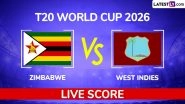

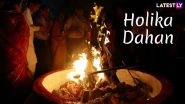

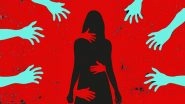
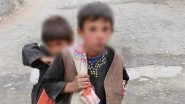

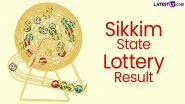
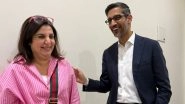


 Quickly
Quickly


